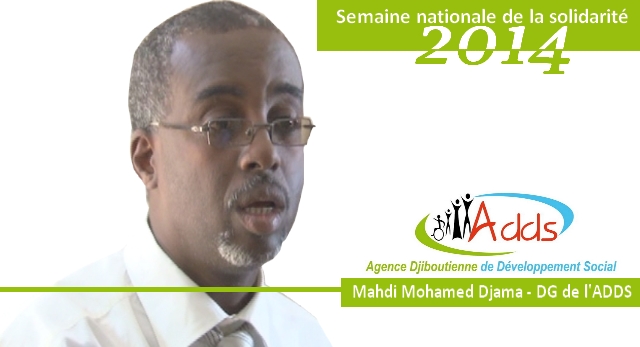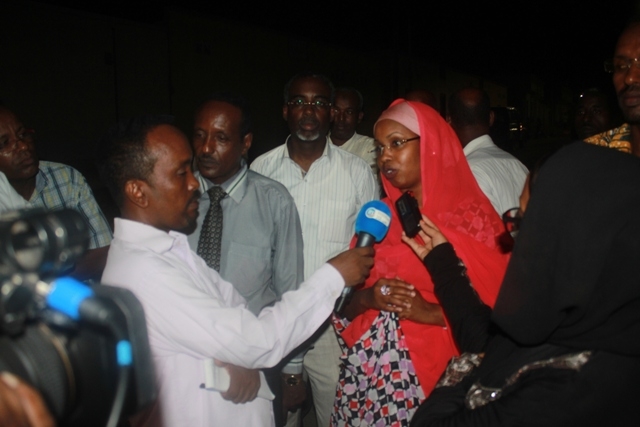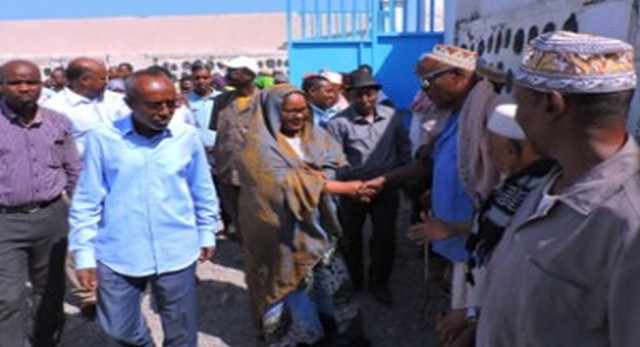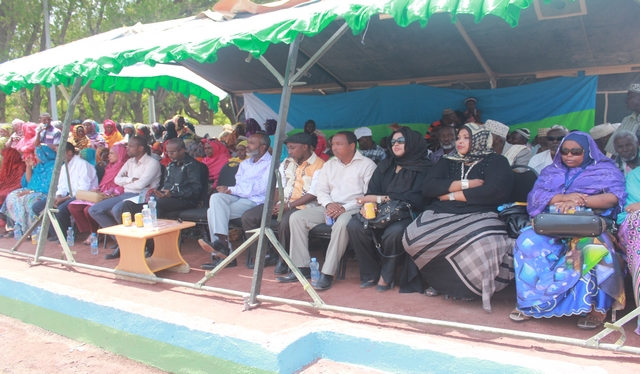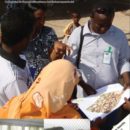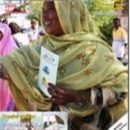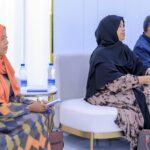Under the patronage of the Secretary of State for Social Affairs, Her Excellency Mouna Osman Aden, the Mayor of Djibouti, Fatouma Awaleh Osman, the President of the Balbala Commune, Mr Waberi Nour Elayeh, and the Director General of The ADDS, Mahdi Mohamed Djama, the Djibouti Social Development Agency, organized a ceremony for the granting of microcredit from the framework of Islamic Microfinance for thirty two promoters of the municipality of Balbala on Wednesday 05 at the Cattle Park located in The municipality of Balbala.
The main promoters are for the most part coming from the agricultural sector, namely butchers who will be able to buy more sheep, calves and equipment to increase the production of the income-generating activity.
Since its official launch in November 2012, the microfinance unit in Balbala has raised awareness of 1,000 people, identified 235 projects, and funded 146 projects, 104 of them women. All these products are subsidized in part by the ADDS in order to retain the potential clientele of the savings and credit union, but above all, go beyond the assistance stage and create the need for promoters of micro-projects.
Islamic microfinance is conceived as an accompanying package to integrate financial, economic and social inclusion. The objective of microfinance is to improve the economic inclusion, the needs of the vulnerable strata to enable income-generating activities and to favor the development of sectors of activity taking advantage of the country’s opportunities (fishing, mining, trade , Crafts, services).
Islamic finance is based on five principles, including prohibitions on taking interest, uncertainty related to speculation prohibited by the Shari’ah. It is based on the sharing of losses and profits, and the existence of an underlying asset.
Finally, the Secretary of State for Social Affairs, Her Excellency Mrs. Mouna Ahmed Osman, continued her visit to the service point of the Balbala Credit and Savings Bank.
Created in early 2011. The Caisses Populaires d’Épargne et de Crédit are microfinance institutions whose main mission is to offer financial services, such as small credits (“microcredits”) to people who have not Not have access to the formal financial sector (traditional banks), in order to support them in the creation of productive or income-generating activities.
By providing access to financial services, CPECs play an important role in the fight against poverty. Indeed, the income generated by the activities not only allows to develop it, but also contributes to household income, and thus to food security, to the education of children, to the care of health care.

